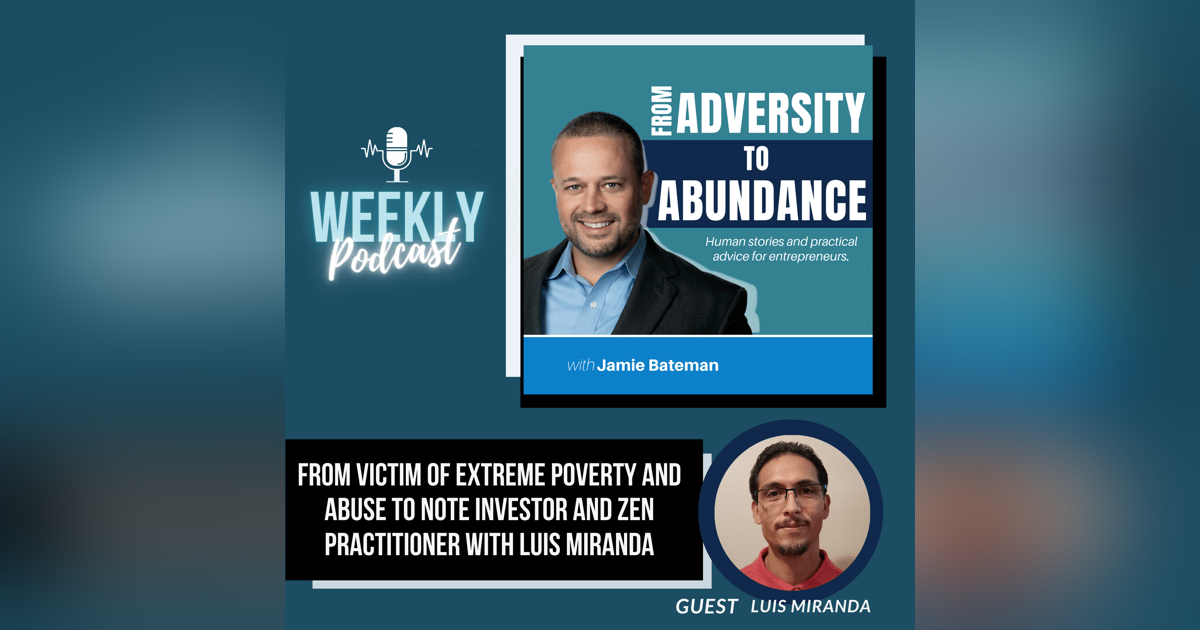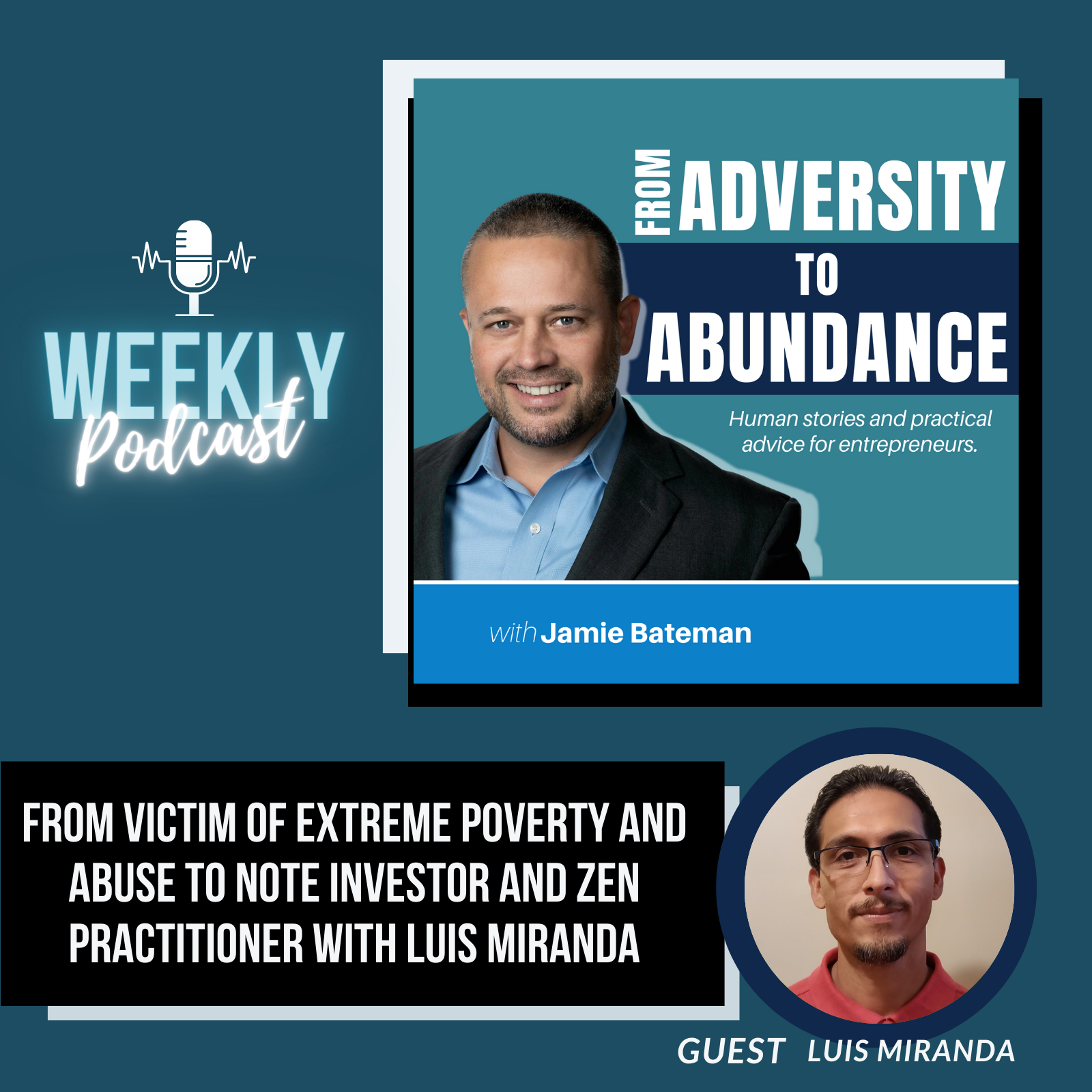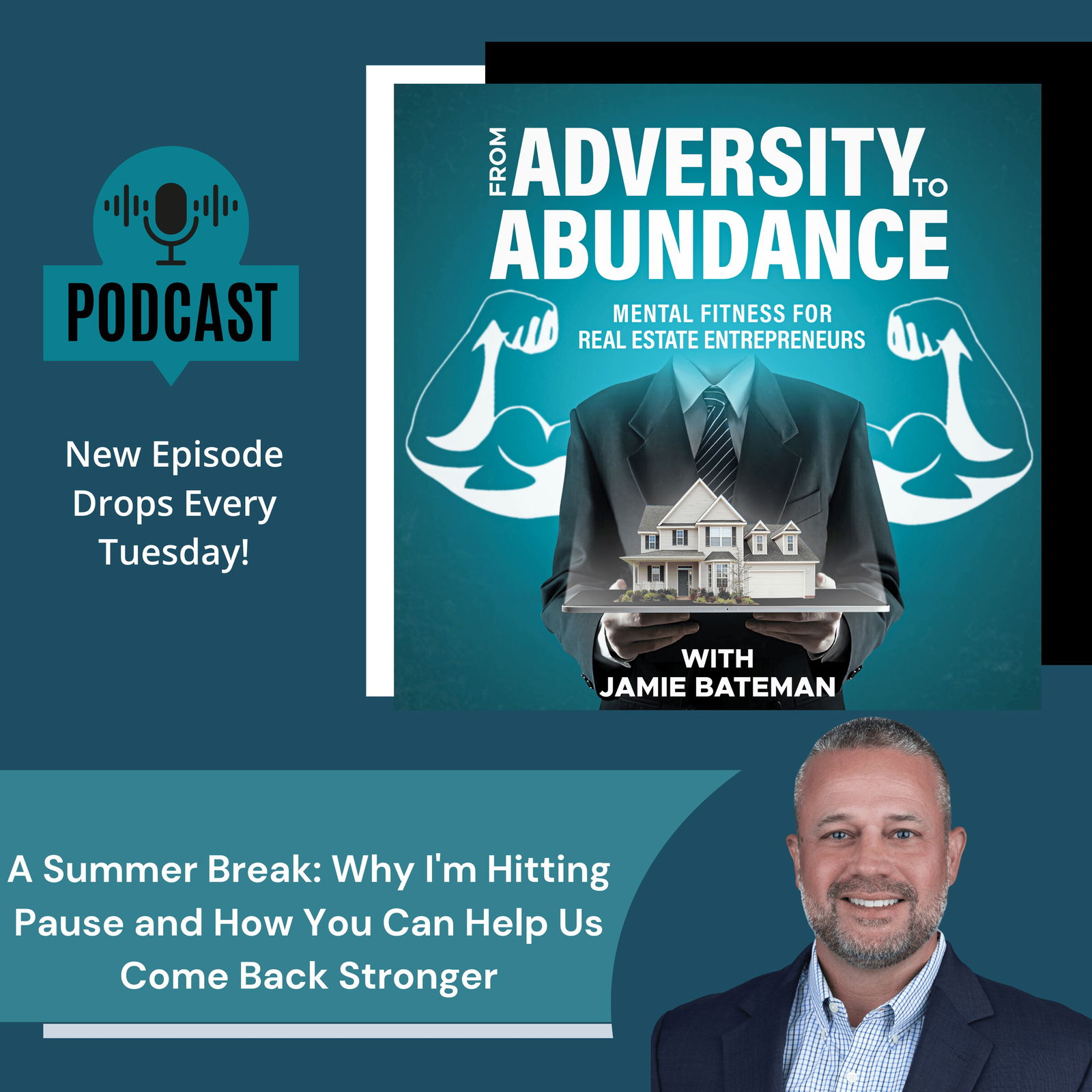From Victim of Extreme Poverty and Abuse to Note Investor and Zen Practitioner with Luis Miranda


Luis Miranda is a part-time computer programmer and part-time investor. When it comes to adversity, Luis may just set the bar based on what he has been through. Luis grew up in Peru with no running water and no electricity. On top of that, he went through years of molestation and physical abuse, dealing with instability and a lack of safety and trust for his entire childhood.
Eventually making his way to the U.S., Luis bounced around as part of the foster-care system but still suffered from trust issues and a lack of direction and hope. Among other things, he turned to selling and using drugs.
Tune in to hear how Luis took ownership of his life and changed his path. He is now a married, successful W-2 employee and investor. But his path to abundance was not a straight one. Even recently, after Luis had "made it," he dealt with a serious lack of happiness and fulfillment. He is now focused on adding value to others and practicing Zen. You do not want to miss this episode!
Haven Financial:
https://www.myfinancialhaven.com/jamiebateman/
ATTENTION:
Unlock the secrets to a transformative life with “From Adversity to Abundance: Inspiring stories of Mental, Physical and Financial Transformation”. Buy your copy now and embark on a journey from challenges to triumphs!
AMAZON: https://www.amazon.com/dp/B0CGTWJY1D?ref_=pe_3052080_397514860
Connect with us
WEBSITE: https://www.adversity2abundance.com
Leave us a rating or review: https://www.adversity2abundance.com/reviews/new/ or here
Got comments, feedback or suggestions? We’d love to hear it! https://www.adversity2abundance.com/contact/
Follow From Adversity to Abundance Podcast
FACEBOOK: https://www.facebook.com/profile.php?id=100089126144055
INSTAGRAM: https://www.instagram.com/adversitytoabundancepodcast/
LINKEDIN: https://www.linkedin.com/company/89949391/admin/feed/posts/
YOUTUBE: https://www.youtube.com/@FromAdversity2AbundancePodcast
Connect with Jamie
BOOK: From Adversity to Abundance: Inspiring Stories of Mental, Physical, and Financial Transformation
LINKEDIN: https://www.linkedin.com/in/jamie-bateman-5359a811/
TWITTER: https://twitter.com/batemanjames





